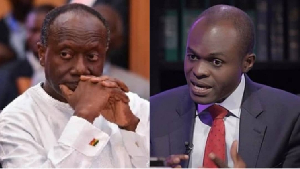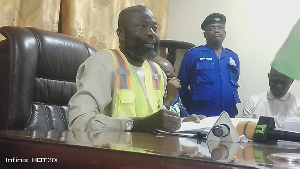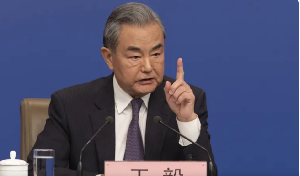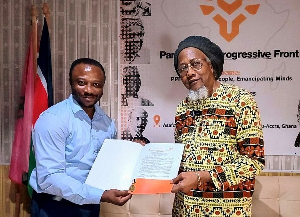It's becoming very common to hear politicians (and people who are supposed to know better) calling for a national debate on all sorts of subjects. In fact, it's becoming annoying.
I'm beginning to get the impression that when these people are offered a platform to speak and they realise that they have very little or nothing to say, they simply decide to call for a national debate. For example, a District Chief Executive takes to the podium to speak on why the heck his jurisdiction is so dirty and stinks so bad. Instead of addressing the issue and offering workable solutions, he calls for a national debate on sanitation.
Another example: Teachers are unhappy about career advancement and a so-called educationist is called for her opinions on the matter. The best she has to offer is to ask for a national debate on teacher training.
A few days ago, the local government minister, Kwadjo Adjei-Darko was reported to have urged Ghanaians to start debating how much assembly members should be paid in allowances. Years ago, President Kufuor called for a national debate on wages and salaries.
In between President Kufuor's call and Mr. Adjei-Darko's recent proposal, there have been numerous suggestions for Ghanaians to debate anything ranging from healthcare delivery to pensions and press freedom. We've heard people asking us to debate the mandates of the Commission on Human Rights and Administrative Justice and the Serious Fraud Office. I think I read in the newspapers somewhere that someone called for a national debate on whether we should stop building KVIPs. In a modern era, do we even need to think twice before coming to a decision that water closets are more hygienic than pit latrines?
Since I heard Mr. Adjei-Darko's call for a national debate on assembly members' allowances, I've been thinking about what he actually meant? What is a "national debate"? What format should it take and who should actually be the participants?
I've thought about these questions and come to one single conclusion: we talk too much already and those we've elected to take the tough decisions should go ahead and do what they have to do.
With or without the prodding of politicians (and the so-called experts), we Ghanaians debate the issues alright. We talk about everything and anything. In our country today, there are mini-experts on almost every area of human endeavour. Nuclear science is not a very popular subject in our schools and universities but cast your mind back to about six months ago, when government announced plans to adopt nuclear energy. Many people were heard speaking to the subject. There were those who were for the motion and there were those who were against it.
Every major issue and every serious news item is debated every day and night in this country. People talk about them in their homes, in chop bars and, of course, on radio. So we debate. We don't need high-ups telling us what to debate. When the issue comes, we will talk freely about it – sometimes with great depth, sometimes in ignorance.
Besides expressing our views on the numerous radio stations (never mind the serial callers), Ghanaians also talk at a lot at workshops and seminars – of which there are an awful lot. In the past week alone, there have been numerous workshops discussing everything from safe deliveries to climate change and 'Alternative Carving Wood for Sustainable Livelihood' (whatever that means).
The point I'm making is that we talk – even without people urging us to do so. We talk too much, in fact. If only we talked and acted in equal measure, we'd be much better off than we are. Our talking might not count as a debate in the strictest sense of the word but I suppose that when people say we should have a national debate they mean "let's talk."
Knowing very well that we talk a lot already (and I've heard politicians say Ghanaians talk too much), it's very interesting the things they want us to talk about (or debate).
When MPs were being offered car loans, nobody mentioned the need for a national debate on the matter. They just went right ahead and took the loans, which they've mostly refused to repay.
When MPs were fixing their salaries, they didn't call for a national debate. Also, in this country no one knows how much a minister of state earns. Day in, day out, we see our politicians driving around in posh cars, building mansions and acquiring property left, right centre. We don't know where all their money comes from. When it comes to the service conditions of public servants, there is no limit to the things we don't know.
What we know, though, is that they are paid very well and mostly, they do not even have to spend their money because the taxpayer takes care of all their bills. They decided all these for themselves without so much as a thought for how the ordinary man feels or thinks. There was no national debate.
But when it comes to paying us what we deserve they tell us that "Ghanaians pretend to be working and government pretends to be paying them", so let's have a national debate on wages and salaries. When it comes to paying assembly members (the most important decision makers at the district level, where decentralisation is supposed to be pushing the national development agenda), the minister is calling for a national debate. Why not just go right ahead and fix their allowances like was done with the MPs and government officials.
I suppose the president's call for a national debate on wages and salaries has not ended because people are still complaining about their "take home". Did the debate start at all? Now we are being asked to start debating the allowances for assembly members. Will it start? Will it ever end? Will a decision ever be taken?
Ours is a very s-l-o-w-l-y developing country. We need more action and less talk. Talking is very important. But politicians should not tell us to talk when it suits them only to turn around and tell us to shove it when they don't feel like listening to us. For now, therefore, I say let's have a national debate on whether or not we should heed those who call for national debates.
Your views:
outsidergh@gmail.com















